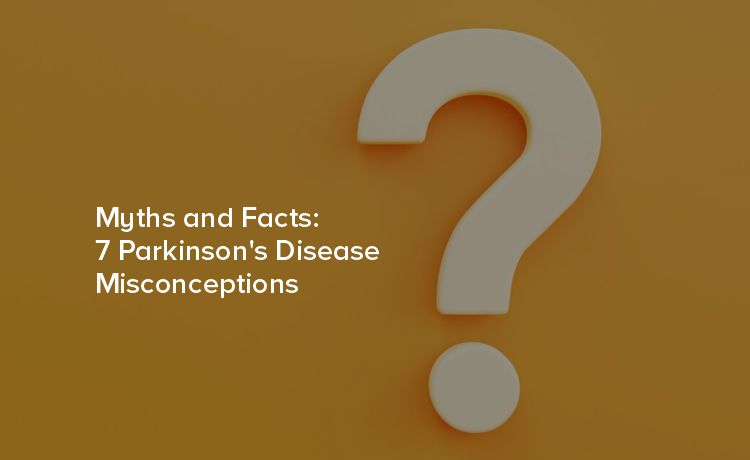
Life with Parkinson's disease is a complex web of challenges, adaptations, and often, misunderstandings. If you or someone you love has been diagnosed with Parkinson's, chances are you've encountered misconceptions about this neurodegenerative disorder. It's time to unravel the myths and get to the truth.
While it's true that the incidence of Parkinson's increases with age, with most diagnoses occurring after the age of 50, the disease can and does affect younger adults too. About 5-10% of all cases are classified as "young-onset," meaning individuals are diagnosed between the ages of 21 and 50. These cases present unique challenges as they intersect with career, family planning, and a myriad of lifestyle factors that differ from those diagnosed in later life.
Recognizing the potential for younger individuals to have Parkinson's is crucial. Dispelling the myth that it is exclusively an "older person's disease" is vital for timely diagnosis and intervention. It paves the way for nuanced treatment approaches that account for the different life stages and requirements of patients.
While Parkinson's is primarily known for its motor symptoms, including tremors, bradykinesia (slowness of movement), and rigidity, it is a multi-systemic disorder that goes beyond just the physical. Individuals with Parkinson's may also experience non-motor symptoms, such as gut dysmotility like constipation issues depression, anxiety, sleep disturbances, and cognitive changes, urinary disturbances known as Parkinson's disease dementia.
Recognizing and addressing the non-motor symptoms is just as crucial as managing the motor aspects of the disease. A holistic treatment approach, which might involve medication, therapy, and lifestyle modifications, helps improve the patient's overall quality of life.
Although Parkinson's may not be as common as some other chronic conditions, it is not rare. It affects approximately 1% of the population over the age of 60, making it more prevalent than many might assume. The global burden of Parkinson's is significant, impacting millions of individuals and their families.
Understanding the true prevalence of Parkinson's is the first step in addressing the support and resources needed for those affected. Increased awareness and advocacy are necessary to ensure that the scale of this public health challenge is acknowledged and met with appropriate responses.
Parkinson's disease itself is not considered fatal. Individuals can live for decades with the condition, especially with the advances in treatment modalities available today. However, complications from Parkinson's, such as falls, pneumonia, and sometimes side effects of medication, can be life-threatening.
Be clear about the differences between Parkinson's as a chronic condition and potential life-threatening complications that may arise. This distinction is important in maintaining hope and focusing on managing the disease effectively, while also taking precautions to prevent and address any severe health issues that may arise.
While a tremor is a hallmark symptom for many people with Parkinson's, not everyone will experience this specific motor symptom. Around 30% of patients do not develop a tremor, instead presenting with other motor symptoms such as slowness of movement, stiffness, or instability, known as postural instability and gait disorder (PIGD).
Understanding the variety of presentations of Parkinson's ensures that individuals who may not have a tremor still receive timely diagnosis and suitable treatment. Doctors and individuals alike should be aware of the full range of potential motor symptoms to avoid misdiagnosis or delayed treatment.
Parkinson's disease is complex and likely arises from a combination of genetic, environmental, and potentially other unknown factors. While certain genetic mutations are associated with a higher risk of developing Parkinson's, they are not the sole cause. Additionally, exposure to certain environmental toxins, head injuries, and viral infections have been implicated as potential contributors to the disease.
Fostering understanding of the multifactorial nature of Parkinson's encourages a comprehensive approach to research and treatment. It also shifts the focus from seeking a simplistic cause to understanding the complex interplay of various factors and how they can be modulated for better outcomes.
While there is currently no cure for Parkinson's, there are many treatments available to manage the symptoms and improve quality of life. These treatments can include medication, surgery, physical therapy, occupational therapy, and speech therapy. Research into new therapies, disease modification, and eventually a cure is ongoing and shows promise for the future.
Understanding that there are effective treatments for Parkinson's can provide hope and motivation for individuals living with the condition. Encouraging continued support for research and access to multidisciplinary care is essential for advancing treatment options.
there are also ways to present the development & individuals whose annually mean is affected.
By addressing these misconceptions and sharing accurate information about Parkinson's disease, we can foster a more supportive and understanding environment for those navigating life with this condition. If you or someone you know is affected by Parkinson's, remember that knowledge is power, and support is available. Keep the dialogue open, stay informed, and continue to seek the best care and resources for a fulfilling life despite the challenges.
Citizens Specialty Hospital which has the team of best neurologists in Hyderabad. Book an appointment now with our experts.